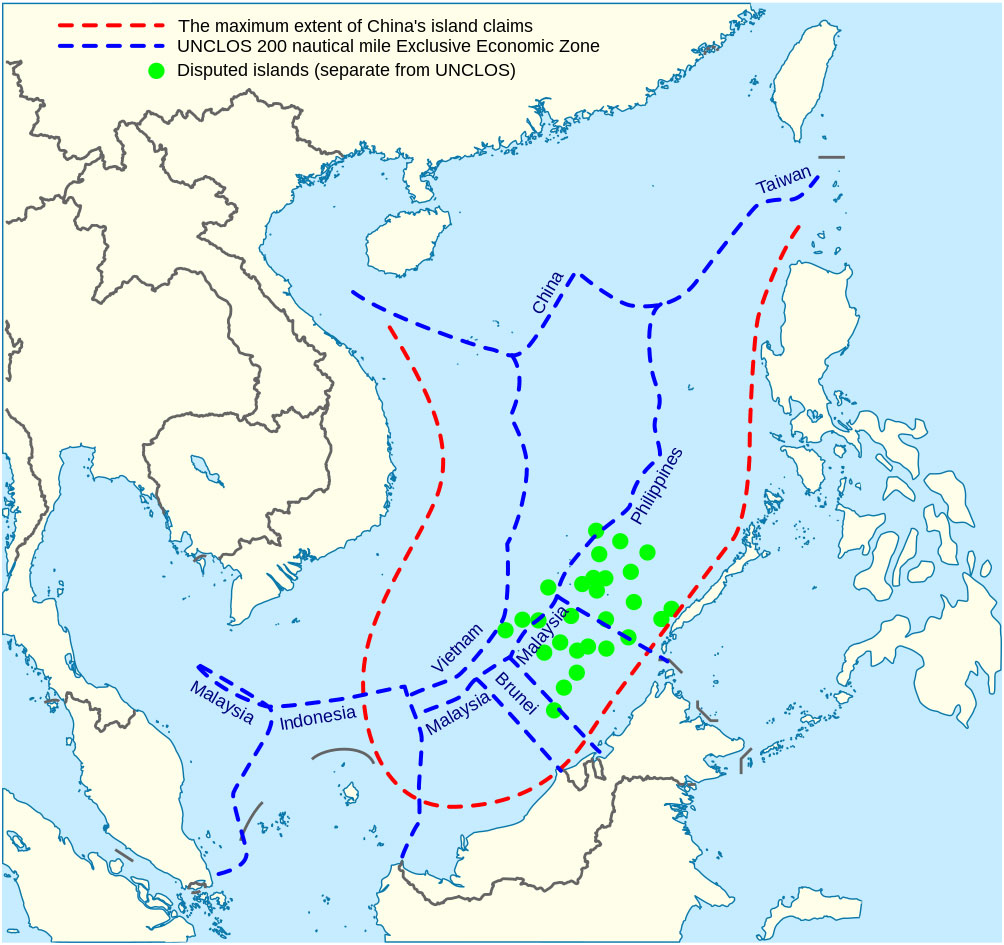
Thinking Beyond Politics
By Victor Andres C. Manhit

Nearly seven years ago, on July 12, 2016, the Permanent Court of Arbitration (PCA) in The Hague ruled on the case that the Philippines had brought against China, on the matter of expansionist claims in the South China Sea and violations of the Philippines’ sovereign rights in its Exclusive Economic Zone. China, the PCA said, breached several provisions of the 1982 United Nations Convention on the Law of the Sea (UNCLOS) and nullified it’s “nine-dash” claim of almost the entire South China Sea.
China had adopted a position of non-acceptance and non-participation in the arbitral case, refusing to recognize the jurisdiction of the PCA.
The court’s decision should have been a momentous victory for the Philippines, but the then-12-day-old administration of President Rodrigo Duterte appeared to have other priorities. Mr. Duterte declared that he would observe an “independent” foreign policy, but it soon became clear that “independence” was really a euphemism for a pivot to China.
Our giant neighbor to the West thus became emboldened to conduct gray zone operations in our own territory. Over the next few years, China conducted various activities off our waters, going to great lengths to intimidate maritime law enforcers and even fishing communities in the affected areas. Meanwhile, in exchange for promises of loans and investments, Mr. Duterte harped on the Philippines’ puny military capabilities compared to China’s might and oversimplified the issue into a dichotomy of acceptance or all-out war.
One of the more promising acts of this new administration under President Ferdinand Marcos, Jr. is its stronger, more principled stand on the issue of the West Philippine Sea. We will hold Mr. Marcos accountable to his promise that he would not abandon even one square inch of territory of the Philippines to any foreign power. The people are tired of soundbites and expect action when it comes to defending our sovereignty. Certainly, we will no longer accept hyperbolic jokes to jet ski in the disputed waters waving the Philippine flag. We certainly hope that Mr. Marcos means exactly what he said that we will not be subservient to any external force and that his brand of independent foreign policy would only be primordially driven by national interests.
We are encouraged further by the appointment of Defense Secretary Gilberto Teodoro, who, aside from holding the same post during the Arroyo administration and thus will no longer need to learn the ropes, is also a bar topnotcher, indicating his reverence for the rule of law. Early on, Secretary Teodoro has asserted that the UNCLOS must be perpetually upheld regardless of changes in the administration.
It is under Teodoro, as the alter ego of the President, that we are expected to see a recalibration of internal and external defense strategies. This is a welcome shift especially since we have done much on the internal front, and since the current external threats and challenges that we face demand greater focus on boosting our defense capabilities as a state in the center of geopolitical tensions in the region.
As proof of this recalibration, the Philippine Navy — for the first time — deployed its enhanced antisubmarine warfare (ASW) capabilities to the West Philippine Sea, marking a new milestone in its growing combat capabilities. On June 20, the missile-armed BRP Antonio Luna and AgustaWestland AW159 Wildcat helicopter were sent to Palawan. According to the Western command, the ASW platforms have been deployed to the country’s western border for maritime and sovereignty patrols.
Likewise, on the other side of Luzon, maritime patrols under the Joint Task Force Karagatan in the Benham Rise were conducted last month. The Navy and the Air Force both participated in these patrols.
These are just the more recent manifestations that the Philippines is enhancing in its external defense capabilities. These developments would not have been possible without the help of our international friends and allies who share our values and commitment to the rule of law.
This, after all, is what the arbitral victory reinforces: the importance of strengthening multilateral cooperation and maintaining a rules-based international order. Thus, as security challenges continue to undermine peace and stability in the region, the Philippines and other like-minded states must work together to uphold the arbitral ruling and effectively address emerging security threats. The expression of support from countries like the United States, Australia, Canada, France, Germany, Italy, Japan, New Zealand, and the United Kingdom has been invaluable.
Filipinos themselves have given these friendly countries high net trust ratings, as seen in a Stratbase-commissioned survey done by Pulse Asia in June 2022. The United States enjoyed a 74% trust rating, Australia 48%, Singapore 42%, and Japan 32%, among others. Nearly nine in 10 Filipinos, according to the same polling firm, also agreed that the Philippine government should assert its right on the West Philippine Sea. The numbers for June 2023, expected to be released in the next few days, should reflect similar results.
In commemoration of the PCA ruling, the Stratbase ADR Institute will hold a hybrid town hall discussion called “The 7th Year of the Arbitral Victory: Defending the West Philippine Sea, the Indo-Pacific, and the Rules-Based Order,” to be held on Wednesday, July 12, from 9 a.m. to 3:30 p.m. The forum will be in Makati City but will also be live streamed via Zoom and all are welcome to register and listen in as our friends from Australia, Japan, the European Union, the United Kingdom, India, the United States and top experts join the conversation and share insights on the developing geopolitical environment.
We will be missing our beloved late Ambassador Albert del Rosario during this forum. He would have loved to hear about developments in our continuing efforts to defend our sovereignty and territorial integrity. He was a great statesman and patriot, who lived his life of passion and persistence. We continue to be inspired by his example and will sustain his mission to uphold the international rules-based order towards peace and stability in the Indo-Pacific.
Victor Andres “Dindo” C. Manhit is the president of the Stratbase ADR Institute.